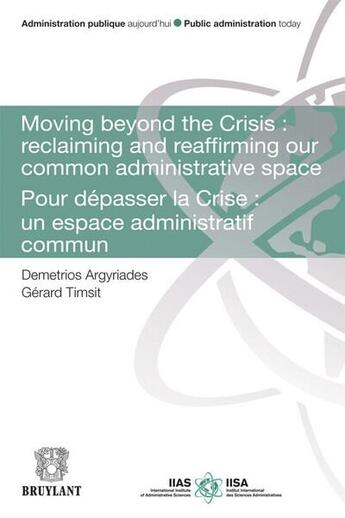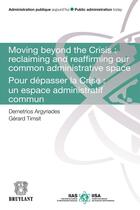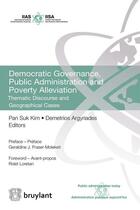-
Date de parution : 13/12/2012
-
Editeur :
Bruylant
-
EAN : 9782802739821
-
Série :
(-)
-
Support :
Papier
Résumé:
With the financial meltdown and the economic crisis in their fifth year already no one can any longer be in doubt about their exceptional gravity, their truly global impact and their profound effects hurting vulnerable groups and the very poor especially. As the world looks for an exit from this... Voir plus
With the financial meltdown and the economic crisis in their fifth year already no one can any longer be in doubt about their exceptional gravity, their truly global impact and their profound effects hurting vulnerable groups and the very poor especially. As the world looks for an exit from this economic crisis - the worst in eight decades - the focus of attention is naturally on the causes, the factors that account for its wide reach and severity, as well as on strategies that might bring it to a closure.
The quest for exit strategies is at the very centre of the issues and concerns explored in the present volume, produced by the IIAS. Like the preceding volumes, but even more emphatically, this volume, representing a collective endeavour of scholars and practitioners from many parts of the globe, finds cause to lay the blame, for our difficult predicament, on the institutional deficit, the policies, the practices and values that have followed in the trail of a highly misleading and erroneous model of governance.
The «Market Model of Governance» as it is known, sought to reform, the structures and culture of administration and government in private sector ways. While instrumental values like efficiency and effectiveness were raised and praised profusely, those of democratic governance were discounted by comparison. In particular, integrity, the rule of law and due process, equity, legality and public service professionalism suffered a steep decline, in several parts of the world. Likewise, the invasion and the capture of public space, inevitably led to an unprecedented surge of greed, abuse and corruption that contributed directly to the crisis which is upon us.
Looking for exit strategies, as its title aptly suggests, the present volume offers a rich menu of ideas drawn from the current experience of all the world´s main regions. Not surprisingly, two concepts stand out throughout the book as necessary correctives, as well as pressing remedies to the world´s ongoing malaise. They call for the recapture of our common administrative space and the reaffirmation of the values and virtues appropriate for democratic governance. To the IIAS, none perhaps are more important than public service professionalism and none other can contribute more effectively to the reform and consolidation of sound institutions for national, sub national, global and regional governance.
For these reasons, at this juncture, the new volume like the others should be featured in every public library and become a vademecum of all scholars and practitioners of public administration and politics around the world.
Donner votre avis
















